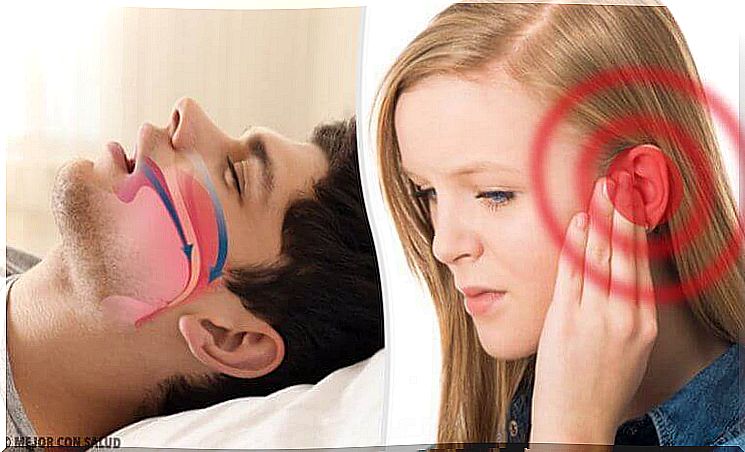8 Bodily Sounds That We Often Overlook

Our body is the most perfect machine that exists. It is so smart that it can even warn us when something happens to it. For example, by bodily sounds. The problem is that we are very rarely aware of these signals, and we end up ignoring them completely.
The signals that our body sends us often come in the form of sounds. Whether this is clicking, ringing in our ears, snoring, stomach sounds or other bodily sounds.
So that they do not go unnoticed, we share 8 bodily sounds that you should be aware of.
1. Crackling sounds in your legs

This type of bodily sounds can have many different reasons, for example:
- Muscle fatigue, including possible accumulation in the blood vessels and wear and tear of the knee joints due to overload.
- Anatomical features of ligaments and menisci which, despite not affecting the mobility of the leg, emit a remarkable clicking sound.
- Days filled with extensive movement, especially when the body is not physically used to it.
In most cases, the click does not mean that it is a problem, but if it causes pain or swelling, it is necessary to consult your doctor.
It is important to get a check as it may be due to a fracture of a ligament or meniscus. It can even be a signal of arthritis.
2. Constant snoring

Snoring is caused by the vibration in the airways when air passes through the mouth or nose.
Despite the fact that snoring is quite normal, it is well known to doctors that it usually comes from an obstruction or blockage in the nose (nostrils), mouth or throat.
These are the most common causes of snoring and you should consult your doctor about these:
- Loss of muscles in the neck
- Obesity
- Reaction to medication
- Excessive use of alcohol
- Blockage of the nasal passage
- Curvature of the nasal septum
3. Clicking in the jaw

In some cases , this may mean a displacement of the temporomandibular joint. In other cases, it may be caused by ligament inflammation in the temporomandibular joints.
It can also be due to bruxism (the habit of rubbing teeth unconsciously), cavities or strong tension in the facial muscles.
In any case, we recommend that you contact a medical specialist.
4. Different sounds in your ears

Many times the buzzing that occurs in our ears disappears by itself without having to be treated.
However, in cases where sound is present constantly and does not go away easily, it is recommended that you consult a medical specialist. These sounds can be caused by an infection or a disease of the inner ear.
5. Physical sounds when sleeping or getting up

This type of bodily sounds occurs very suddenly. Generally, it tends to be short-lived and extremely annoying.
In these cases, the exact causes are unknown.
6. Kneeling in your shoulders

In these cases, the cracking can mean various things, such as:
- Tendinitis, tendonitis caused by a blow or excessive wear.
- Bursitis, inflammation of the pocket between the leg and the tendon of the shoulder.
- A tear in the rotator cuff in the shoulder.
7. Clicking on the elbow

Clicking on the elbow can be a sign of mechanical problems in the joints and can be caused by various reasons, such as:
- Poor nutrition
- Local infections
- Metabolic states
- Injuries caused by hard blows
- Lack of physical activity and, at the same time, too much of it when done wrong.
In these cases, the clicking continues for an extended period of time and also causes pain and inflammation. It is recommended that you consult a doctor to find a solution.
8. Clicking in the throat

Clicking in the throat can be more serious than we think. This, in some cases, can be a symptom of a neurological disorder affecting the tissue, such as Parkinson’s disease.
Apart from this, it can also be caused by the growth of the thyroid gland. In these cases, you will eventually stop hearing the click and the condition will go away on its own.
Do not forget that if bodily sounds are accompanied by inflammation or pain, it is important to seek adequate treatment.
In these cases, we recommend that you talk to your doctor. Avoid self-medication and self-diagnosis.









